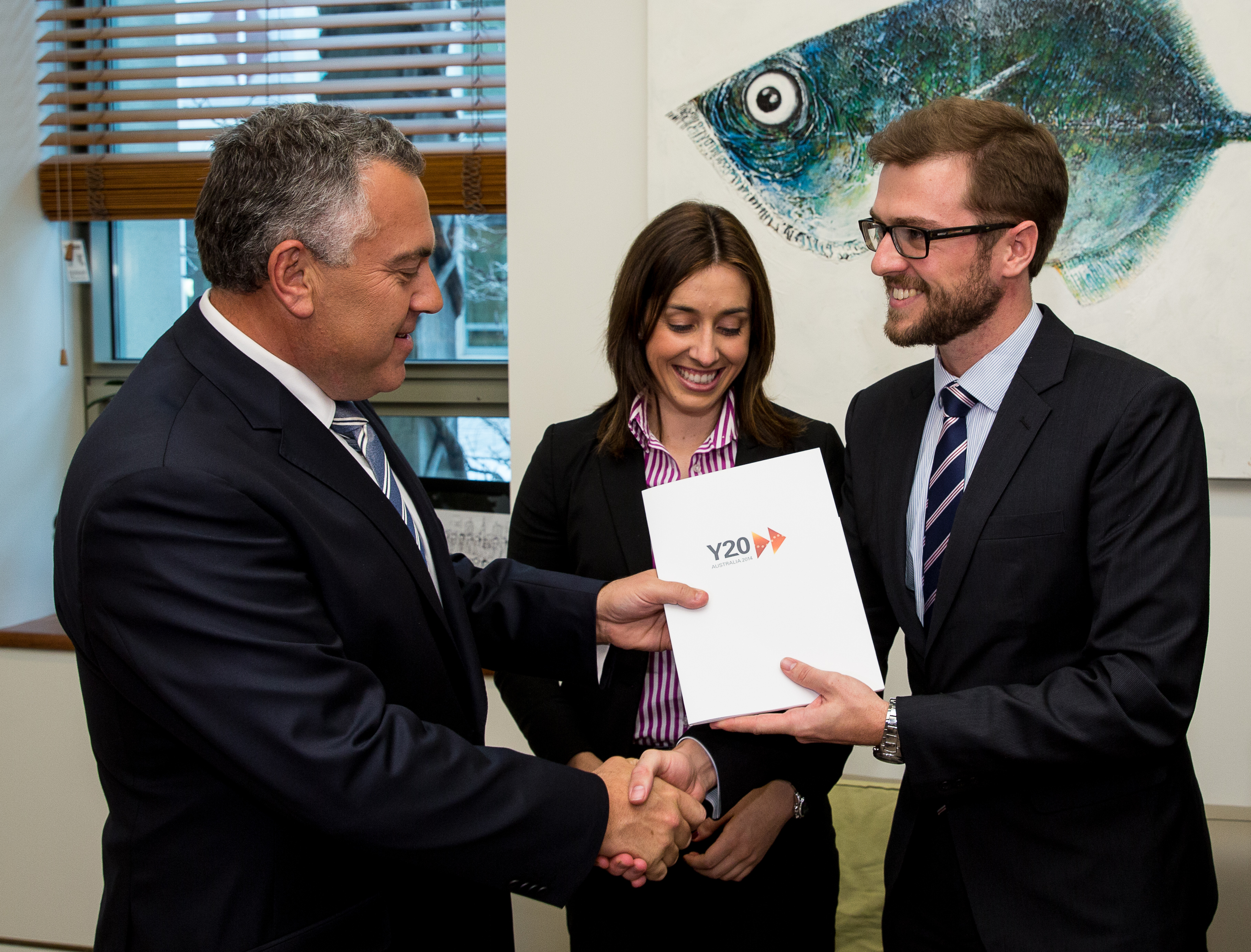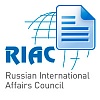Roman Chukov: Youth Diplomacy at Y20 Australia
In
Login if you are already registered
(no votes) |
(0 votes) |
Author: Roman Chukov, Russian Delegation Selection Coordinator for Y20 2014,
Member of Expert Council for Russia's Presidency at G20, Head of Secretariat at Y20 Russia 2013.
Russian Traditions on the Move
Russia’s hosting of the G8 in 2006 pioneered the organization of summits for leaders from several generations. Notably, these Youth Summits for young people were also later held in Germany, Japan, Italy and Canada. The practice proved so effective that in 2010, Canada expanded the event by inviting young experts and students both from G8 and G20 countries. Inspired by previous successes, Mexico, the G20 host country in 2012, chose to return to the youth-oriented format by inviting only young people and students. Y20 Mexico was made part of the official program for the adult Summit in Puebla on May 9-11, 2012. Delegates from G20 countries were tasked with preparing an address to G20 leaders about the issues related to the wider event, i.e. the development of the global economy, international trade, sustainable development, youth unemployment, food security, global governance, and the future of the G20. The proposals made by the young diplomats to the heads of state were presented to then Mexican president Felipe Calderon and mentioned in the communiqué of G20 leaders in Los Cabos.
During its maiden G20 presidency in 2013, Russia followed suit and hosted the first official Youth Summit for young experts and specialists from all over the world. Y20 Russia was held on June 18-21, 2013 in St. Petersburg and brought together over one hundred dynamic and qualified young participants from G20 and other invited countries, who discussed the pressing problems of global economy and sustainable development and also produced recommendations aimed at solving them. The summit's final Communiqué was handed to Russia's G20 Sherpa and President Putin, who dedicated much attention to it during meeting with the leaders of the youth delegations. Mr. Putin was pleasantly surprised by the document's "professional and detailed content"[1] and pointed out the audacity, topicality and depth of the recommendations, saying that with regards to such challenges, the "energy of youth" is both necessary and attractive.
Y20 Russia 2013 began on June 18, 2013 on the eve of the St. Petersburg International Economic Forum and offered participants the opportunity to communicate both with one another and world experts in economy and politics.
Youth Diplomacy 2014
One July 12-15 of this year, Y20 Australia was held in Sidney as an official event during Canberra's presidency in the G20, carrying on the torch of Y20 Russia 2013.
The main agenda included growth, jobs, global leadership and sustainable development. Russia's youth delegation played a pivotal role in preparing the final document and presenting the results, for Russia was part of a troika together with presiding Australia and Turkey, which will take up the presidency in 2015.
The delegates began preparations for the Summit by communicating electronically, a method tried out at previous youth forums and adopted effectively by Australia. The results of these preliminary discussions over the Internet were shown to the G20 Sherpas in Melbourne on June 23. Moreover, Y20 participants later wrote on their blogs that it was Russian Sherpa Svetlana Lukash who had been most responsive to their proposals.
In their final declaration, Y20 delegates made proposals covering all three topics for the G20 leaders.[2]
Outcomes of Y20 Australia
The proposals for generating economic growth and creating jobs included measures to improve the economic incentives for increasing youth employment and investment, developing balanced growth and promoting the development of rural areas. These goals could be achieved by a youth-oriented approach, improved coordination between states and the private sector in order to create economic opportunities and increase access to capital for small and medium-size businesses and young entrepreneurs, create an inclusive and open market with high social standards, and protect states from financial crises in the future.
The final declaration accurately reflected the economic and regulatory incentives suggested by the Russian delegation for increasing the employment of young men and women, improving cooperation between states, banks and businesses, and creating paid internships for young people. The document also included the Russian proposal for establishing special economic zones in order to encourage economic growth and develop public-private partnerships. In the aim of alleviating the harmful effects of financial speculation on growth and employment, the delegates recommended increasing the transparency of transactions, fostering competition between international rating agencies, and stabilizing the process of restructuring sovereign debt by discouraging vulture funds. These proposals were also made previously at the St. Petersburg Youth Summit and noted by President Putin.
In 2013, the suggestions by the young delegates also related to improving financial literacy and inclusion in relevant school programs, while the 2014 communiqué stressed the development of the youth entrepreneurship and proposed the incorporation of such subjects in school curricula. Interestingly, these ideas provide for a fair and comprehensive approach to promote the economic activities of all social groups, and, even more importantly, flexible job programs for mothers and young families.
The document's second part was devoted to mobility and international development through the implementation of measures to improve labor mobility with the help of social welfare agreements, priority initiatives for accessing global education and advanced training, lower barriers to mobile labor for students and young professionals, and free access to the Internet and online training. With regards to more successfully engaging young people in decision-making, recommendations were made for advancing the continuity of Y20 presidencies, among other things through supporting the troika mechanism and improved interaction with the official working groups of the G20.
The Russian delegation launched an initiative aimed at bolstering the B20/G20 Global Apprenticeship Network for developing sector-specific education and skills, as well as for bringing together young people and potential employers. Russia's practice of advancing public-private programs for providing financial and visa support for training and subsequent employment over a specified period was also accepted and included in the declaration.
Both in 2013 and 2014, many Y20 proposals were devoted to sustainable development and the role of young people in this process at the international level, with several initiatives put forward at the Sydney Summit.
To this end, part three of the document declares the priority of sustainable development within the three integrated areas in all G20 committees and their recommendations, including improving cooperation with the private sector and civil society in many fields. Delegates proposed measures for reducing structural imbalance, with the Russian delegation coming up with the idea of developing national strategies for responsible and safe waste management. The concrete recommendations were aimed at designing systems for food production and trade liberalization for sustainable development, achieving comprehensive access to efficient and stable energy resources for guaranteed basic living standards, developing competitive economies, and eliminating the effects of climate change, as well as disaster risk management.
On July 16, the youth declaration was presented to Australian Treasurer Joe Hockey and later the communiqué will be handed to the G20 Sherpas, with evaluations of the prospects of these proposals to be later included in the statements of G20 leaders after the November 15-16 Summit in Brisbane.

Photo: www.g20.org, Y-20 Planning group Co-Chairs hand over the Y-20 recommendations to Joe Hickey, MP
[1] Meeting the Participants of G20 Youth Summit // Official Site of the Russian Federation President (http://kremlin.ru/news/18379)
[2]Y20 Australia 2014 Delegates Declaration // Y20 Australia Official Website https://y20australia.com/news-and-media/y20-australia-2014-delegates%E2%80%99-declaration
(no votes) |
(0 votes) |




